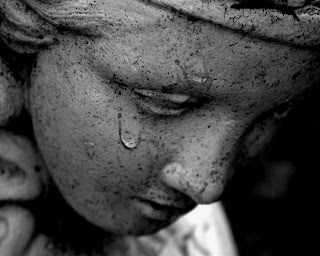Chapel for academic credit. Attend chapel for two days of the week. Meet for small group discussion with a faculty mentor on the third day. Research paper and weekly reflection papers or online forum discussion posts required. 3 credits.
(Note: faculty mentor would get 1 hour of load credit).
23 February 2013
22 February 2013
13.19. First draft
I hope we all do understand that all this crap I write is unproofed first draft crap, written fast and furious when I have a few moments from all the other crap I gotta do. We do understand that. Don't we?
21 February 2013
13.18. Book #8 2013
 Several years ago I discovered the most helpful little book on academic writing I'd ever seen. It's called They Say, I Say: The Moves That Matter in Academic Writing. I loved the book for the ways it simplified--through the use of basic templates--how academic writing at its best, works.
Several years ago I discovered the most helpful little book on academic writing I'd ever seen. It's called They Say, I Say: The Moves That Matter in Academic Writing. I loved the book for the ways it simplified--through the use of basic templates--how academic writing at its best, works.My freshmen could read it and apply the concepts right away in their essays. The results were almost immediate as they began practicing the art of "starting with what 'they say'" as a way of setting up what "I say"--that is, framing your own argument as a response to what others have said or might say.
I adopted the book solely because I thought it would help my students write better essays. And it has.
What I didn't realize at the time was that something deeper was perhaps subtly being communicated to my students through the book--something I'm guessing I responded to unconsciously when I first read it. What the book actually encourages is the practice of virtues of humility and charity. I listen to (or read) what others are saying; I summarize as clearly as I can what they say, playing the empathetic "believing game,"; and only then do I respond.
I think the authors of the book mean to encourage liberal minded civil discourse, and I'm certainly with them. We need that. But what I've come to recognize is this: civil discourse isn't enough for me and for my Christian students. Ours is a higher calling. We must read and write lovingly.

Alan Jacobs' book A Theology of Reading: The Hermeneutics of Love is a wonderfully dense, insightful book that I take is, in part, a call to charitable academic discourse. It's subtly that, and it's also more than that. Jacobs' suggests that if the great commandment includes loving neighbor as self, then as readers (or listeners) we may well have a responsibility to treat the books we read and their authors as neighbors. "Love your neighbor as yourself," right? And who is my neighbor?
Perhaps it's that book (or poem, or blog, or chapel address) or that author (or speaker) I'm inclined to think doesn't really have that much to offer me.
What might reading and interpretation look like when governed by the law of neighbor love? And what might my less than charitable or dismissive responses to some of the texts or authors I've read (or speakers I've heard) suggest to me about how far I have to go as a disciple of Christ who desires to be perfected in love?
Jacobs' book is well worth the effort it takes to read, and it is one I will come back to again over the years.
17 February 2013
13.18. Book #7 2013
That is, if you count the two volumes as only one book. Of course this is again a re-re-re-read (at least).
13.17. Book #6 2013
Some of my students have a hard time with the playfulness of post-modernist literature--especially with its tendency toward deconstruction. We read this immediately after reading Homer, and some of them have a hard time having the rug pulled out from under their notions about Odysseus and Penelope. But Atwood is only doing what "Homer" did a long time ago. She does a little "story-making" with mythic characters.
I try to tell them that this kind of intertextual gamesmanship is pretty much how all literature works. There's only one real "author." The rest of us sub-creators simply take what has been given us, rearrange, rewrite, and retell.
There's only one story. Infinite variations, though.
Some of them think this is primarily Penelope's story. But Atwood allows the chorus of maids to subvert and maybe trump Penelope's narrative at every step along the way. In the end, theirs is the final word--at least in this novel.
I try to tell them that this kind of intertextual gamesmanship is pretty much how all literature works. There's only one real "author." The rest of us sub-creators simply take what has been given us, rearrange, rewrite, and retell.
There's only one story. Infinite variations, though.
Some of them think this is primarily Penelope's story. But Atwood allows the chorus of maids to subvert and maybe trump Penelope's narrative at every step along the way. In the end, theirs is the final word--at least in this novel.
Subscribe to:
Posts (Atom)
-
Questioning Campus Safety's Gun Policy The following is an opinion piece published in The Bethel Beacon, the student newspaper of Bethe...
-
Possible readings: 1. A Gathering of Old Men by Ernest Gaines 2. Where I'm Calling From: Selected Stories by Raymond Carver 3. Home...
-
Kip Prenkert's Funeral Wakarusa Missionary Church 12 February 2009 Robby Prenkert The Walk You Remember He has showed you, O man, what i...

.jpg)


